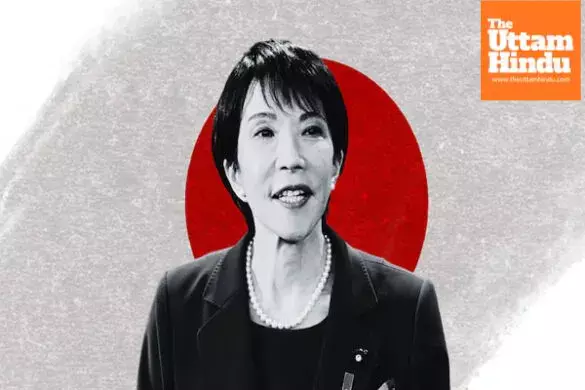Sanae Takaichi makes history, becomes Japan’s first woman Prime Minister

Tokyo (The Uttam Hindu): Japan made history on Tuesday. The country's parliament elected ultra-conservative leader Sanae Takaichi as the country's first female prime minister. This is a landmark event in Japan's political history as Takaichi not only becomes the country's first female prime minister but also the first woman to lead the ruling Liberal Democratic Party (LDP).
Earlier, Japan's ruling Liberal Democratic Party (LDP) elected Sanae Takaichi as its new leader under the slogan "#ChangeLDP." His election as party leader had virtually confirmed his appointment as prime minister, which was ratified by parliament today.
This achievement of 64-year-old Sanae Takaichi is also special because she has joined the select group of post-World War II leaders who have achieved this high position in politics despite not having any major political background.
Since the opposition was not united, this new coalition in Parliament ensured Sanae Takaichi's position as Prime Minister. However, his victory is fraught with challenges. Takaichi's new coalition still falls short of the magic number of a majority in both houses of Parliament (upper and lower).
This means he will have to woo other opposition groups to pass any legislation. This is a significant risk, making his government unstable and potentially short-lived.
Who is Sanae Takaichi?
Sanae Takaichi's personality has been as well-known as her political career. She was a heavy-metal drummer and biker before entering politics. After being first elected as a member of parliament from her hometown of Nara in 1993, Takaichi has held several key positions in the party and government, including ministries such as internal affairs, economic security and even gender equality.
Takaichi considers former British Prime Minister Margaret Thatcher her political idol and strongly agrees with the conservative approach of the late former Japanese Prime Minister Shinzo Abe, who is widely considered a hardliner on foreign affairs, especially towards China.
She is a revisionist of Japan's wartime history and regularly visits the controversial Yasukuni Shrine in Tokyo. This move often angers neighboring China and South Korea. According to the Associated Press, she is known as a leader who is extremely tough on China and cautious toward South Korea.
